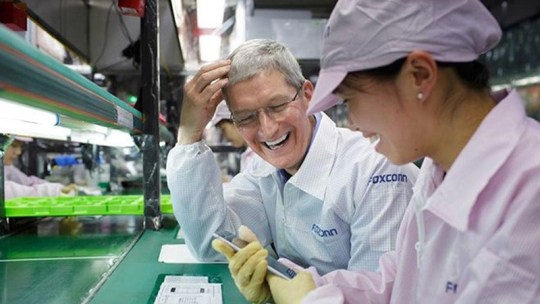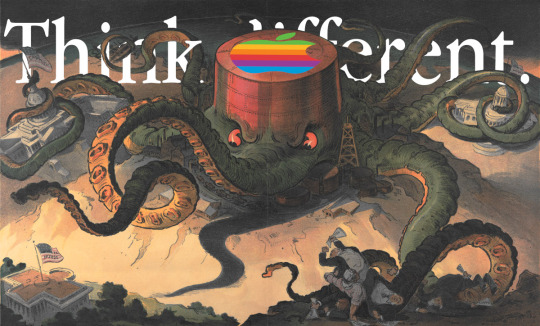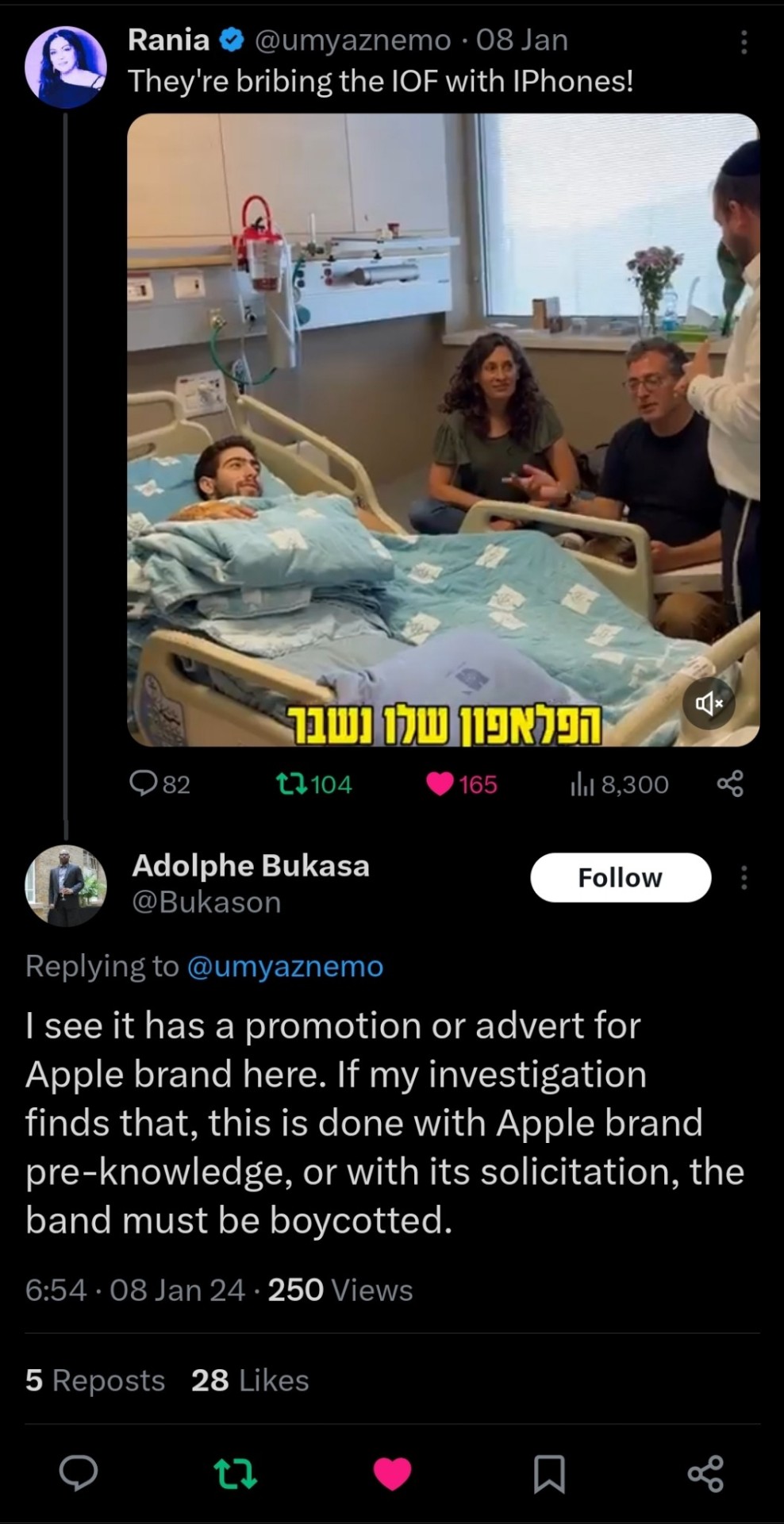#apple ceo tim cook
Explore tagged Tumblr posts
Text
Aditi Rao Hydari And Siddharth Share An 'Unforgettable' Moment With Apple CEO Tim Cook | People News
Actor Aditi Rao Hydari, who attended Apple’s ‘It’s Glowtime’ event with her fiance-actor Siddharth, shared pictures of the “unforgettable and magical” expericene of meeting with Apple CEO, Tim Cook. Tech giant Apple on Monday unveiled the much-awaited iPhone 16 series, Apple Watch Series 10 and AirPod at ‘It’s Glowtime’ event at the new Observatory within Apple Park. Taking to Instagram on…
0 notes
Text
Apple CEO Tim Cook visits Vietnam as the U.S. tech giant looks to boost sales in new markets
Apple CEO Tim Cook arrived in Hanoi, Vietnam, on Monday as the U.S. tech giant looks to boost sales in new markets. Cook will meet with Apple users, developers and content creators during the two-day visit, local media reported. The CEO posted pictures on X on Monday in Hanoi with musicians. He drank an egg coffee. Apple Inc. has expressed its enthusiasm for the Vietnamese market, highlighting…

View On WordPress
0 notes
Text
Tim Cook Opened 1st Apple Store in India 2023
Apple CEO Tim Cook opened Apple's first store in india, Mumbai on Tuesday. Apple's first retail store grand opening ceremony 300+ fans arrived and took photos with Apple CEO Tim Cook. Here forcenewz shares Apple products' release date of 2022 and Apple Products Release Date of 2022 list.

#Apple Store in Mumbai#apple ceo tim cook#apple first retail store#Apple products#Apple First Store in India#Apple products release date 2022#apple iphone 14 pro max release date 2022#Apple products release date 2023
0 notes
Text
#lol#tim cook#apple#ceo pay#inequality#income inequality#i love me my apple products but ceo pay is outta control
124 notes
·
View notes
Text


WTF😡
All the millionaires are bowing down to Trump all of a sudden
#tim cook#apple ceo#fuck trump#fuck the rich#eat the fucking rich#fuck billionaires#fuck republicans#fuck transphobes#fuck maga
2 notes
·
View notes
Text

Tim Cook at the inauguration of Donald Trump
#donaldtrump#trump administration#tim cook#apple store#apple#inauguration day#United States Of America#us politics#tech#today on tumblr#technology#ceo Tim Cook#apple ceo#donald trump#47th president#45th president#us government#america#president trump#new blog
0 notes
Text

“Music's always been at the heart of Apple. It's deep in our DNA.” Tim Cook
#taylor swift#country#billboard#comedy#friendship#apple music#itunemusic#tim cook#ceo information#limbus company#superman#global news#music is life#rick and morty#guns n roses#rock’n’roll#spandau ballet#mtv jackass#mtv unplugged#elvis fans#elle fanning#leann rimes#tony awards#grammys#beyonce#dolly parton#buffy the vampire slayer#amc the walking dead#cma awards#austin texas
1 note
·
View note
Text

Tim Cook Shares Thoughts on His Future, Says ‘It’s Hard to Picture Life Without Apple’
Apple (AAPL) is undergoing significant transformations as it continues to expand its Apple Intelligence generative AI platform, grapples with slowing iPhone sales, and seeks its next major product. At the same time, the tech giant has experienced several high-profile executive departures over the past year.
As reported by Bloomberg, notable exits include Matt Fischer, head of the App Store, Chief People Officer Carol Surface, VP of Talent Management Sjoerd Gehring, and Dan Riccio, head of the headset division. These executives have either already left or are set to leave in 2024. Read more
0 notes
Text
Paradojas de la vida: Apple dispara su cotización gracias a Open AI, el gran aliado de Microsoft…
Su eterno rival al que ha arrebatado es puesto como la empresa más valiosa del mundo: 3,29 millones de dólares frente a los 3,28 de Microsoft. Ana Sánchez Arjona Tim Cook, CEO de Apple Ha tardado, pero, finalmente, Apple se ha sumado a la inteligencia artificial y se ha convertido, además, en la empresa más valiosa del mundo. Y una cosa ha llevado a la otra, lo digo porque ambas noticias se han…

View On WordPress
0 notes
Text
Tim Cook Akan Datang ke Indonesia 17 April
CEO Apple, Tim Cook, dijadwalkan kembali mengunjungi Indonesia pada tanggal 17 April 2024.expand_more Kunjungan ini merupakan kedatangan kedua Cook ke Indonesia setelah sebelumnya pada tahun 2015. Tujuan utama kunjungan Cook kali ini adalah untuk meresmikan Apple Developer Academy yang berlokasi di BSD City, Tangerang.exclamation Akademi ini merupakan pusat pelatihan bagi para pengembang…

View On WordPress
0 notes
Text
Tim Cook: The Visionary CEO of Apple
When we think of Apple Inc., one name that immediately comes to mind is that of its CEO, Tim Cook. Cook has been at the helm of Apple since 2011, succeeding the legendary Steve Jobs, and has since then led the company to even greater heights. In this article, we will take a deep dive into the life and accomplishments of Tim Cook, one of the world’s most successful CEOs. Early Life and…

View On WordPress
1 note
·
View note
Text
Responding to Public Pressure: The Trend towards More Accountable CEOs Compensation

Corporate boards are adopting new approaches to executive compensation in the wake of the recent market downturn. The trend may be just beginning, but some of the country’s most prominent and highly paid CEOs are seeing pay cuts.
Tim Cook of Apple, James Gorman of Morgan Stanley, and David Solomon of Goldman Sachs are just a few of the notable executives who have had their pay reduced.
The move follows a difficult year for the stock market, with 2022 being the worst year for the S&P 500 since 2008.
As companies prepare for potential economic disruption, more and more companies are also reducing their permanent workforces. Cuts in executive compensation reflect a broader push by companies to balance the needs of their employees and stakeholders.
The pay cuts are also a response to the growing pressure from the public and shareholders on businesses to show more accountability and corporate responsibility.
The trend toward lower CEO salaries suggests that companies are taking these demands for accountability seriously and are looking for ways to demonstrate their commitment to responsible corporate governance.
It remains to be seen if the trend of cutting CEO salaries will continue or if it will become more widespread within companies.
However, recent corporate board actions show a shift towards greater accountability and responsibility in executive compensation.
Goldman Sachs CEO David Solomon had to cut salaries by nearly 30% after the company laid off 3,200 employees.
Google President Sundar Pichai also promised “very significant” pay cuts after the company announced it would cut 12,000 jobs. This trend highlights the tough economic times and the need for top executives to share in the pain.
Read also: Million Dollar Bars: A Quick and Easy Dessert Recipe That Will Impress Your Guests
CEOs Beyond Overpaid
Although CEO pay cuts have recently made the news, these executives continue to rank among the highest-paid people in the world.
Apple’s Tim Cook is a prime example, as despite a 40% reduction in his target pay package, he still took home $49 million in total compensation.
Research from Equilar shows that the median CEO pay among the 500 largest public companies by revenue rose 18.9% to $14.2 million in fiscal 2021, with tech CEO pay rising the most at 42.1% to $19.1 million.
However, some experts, such as Nell Minow, Vice Chair of ValueEdge Advisors, argue that CEO pay remains excessive, even after the recent cuts. “They are still overpaid. Let me be super clear about that,” Minow stated.
While CEO pay cuts may be a new trend, executives still receive significant compensation compared to the average worker. Whether these cuts will become a permanent trend remains to be seen, but for now, the world’s top CEOs are still earning more than most people can dream of.
New Trend on Compensation
Amid a challenging economic environment, corporate boards are cutting the pay of some leading CEOs in a new trend that is gaining momentum.
Tim Cook, CEO of Apple, James Gorman, CEO of Morgan Stanley, and David Solomon, CEO of Goldman Sachs, are among the top executives who have seen their pay reduced.
The pay cuts are a response to the dreadful performance of the stock market in 2022 and the need for corporations to brace for a potential recession by laying off workers. This move is seen as a show of solidarity, with CEOs sharing the pain of the rest of the company.
Nell Minow, Vice Chair of ValueEdge Advisors, which advises institutional investors on corporate governance, is relieved that some boards are finally imposing pay cuts on CEOs. She believes that this is the way pay is supposed to work, as traditionally, CEO pay has been all upside with no downside.
CEOs would often receive all the credit and money for good times but then blame external factors for the downside. The trend of reducing CEO pay is a positive step towards making CEOs more responsible.
Despite the pay cuts, these top executives are still earning significant amounts of money and stock awards.
According to the latest research from Equilar, the median CEO among the 500 largest public companies by revenue made $14.2 million in fiscal 2021, an increase of 18.9% from the previous year.
Tech CEOs have received the largest pay hikes, with the median CEO pay surging by 42.1% in 2021 to $19.1 million...Read More
Read also: 10 Christmas movies you need to watch this holiday
Source: Celebrity News
1 note
·
View note
Text
CEOs Share the Pain as Corporate Boards Take a New Approach to Pay

Following the recent market decline, corporate boards are implementing a novel strategy for executive compensation. Some of the most well-known and well-paid CEOs in the country are seeing their pay cut, a trend that may only be just beginning.
Top executives, including Apple’s Tim Cook, Morgan Stanley’s James Gorman and Goldman Sachs’ David Solomon, have suffered pay cuts.
The move follows a difficult year for the stock market, with 2022 being the worst year for the S&P 500 since 2008.
An increasing number of businesses are cutting jobs among their rank-and-file employees as they get ready for potential economic turmoil. The reductions in executive compensation are part of a larger trend in which businesses are attempting to balance the needs of their stakeholders and employees.
Salary cuts are also a response to increasing social and shareholder pressure on companies to demonstrate greater corporate responsibility and accountability.
The trend toward lower CEO salaries suggests that companies are taking these demands for accountability seriously and are looking for ways to demonstrate their commitment to responsible corporate governance.
It is unclear whether the trend of CEO pay cuts will continue or if it will spread to more corporations.
Still, recent moves by corporate boards mark a shift towards greater responsibility and accountability in executive compensation.
Goldman Sachs CEO David Solomon had to cut salaries by nearly 30% after the company laid off 3,200 employees.
Following the announcement of 12,000 job cuts by the company, Google CEO Sundar Pichai also promised a “very significant” pay cut. The difficult economic climate is highlighted by this trend, and top executives must shoulder some of the burden.
CEOs Overpaid
CEO pay cuts make the headlines, but the fact remains that these executives are still among the highest paid in the world.
Apple’s Tim Cook is a prime example, as despite a 40% reduction in his target pay package, he still took home $49 million in total compensation.
Research from Equilar shows that the median CEO pay among the 500 largest public companies by revenue rose 18.9% to $14.2 million in fiscal 2021, with tech CEO pay rising the most at 42.1% to $19.1 million.
However, some experts, such as Nell Minow, Vice Chair of ValueEdge Advisors, argue that CEO pay remains excessive, even after the recent cuts. “They are still overpaid. Let me be super clear about that,” Minow stated.
While CEO pay cuts may be a new trend, executives still receive significant compensation compared to the average worker. Whether these cuts will become a permanent trend remains to be seen, but for now, the world’s top CEOs are still earning more than most people can dream of.
Read also: The Impact of Zoom Firings: Navigating Layoffs in a Remote Work Environment
Pay of Execs
Amid a challenging economic environment, corporate boards are cutting the pay of some leading CEOs in a new trend that is gaining momentum.
Tim Cook, CEO of Apple, James Gorman, CEO of Morgan Stanley, and David Solomon, CEO of Goldman Sachs, are among the top executives who have seen their pay reduced.
The pay cuts are a response to the dreadful performance of the stock market in 2022 and the need for corporations to brace for a potential recession by laying off workers. This move is seen as a show of solidarity, with CEOs sharing the pain of the rest of the company.
Nell Minow, Vice Chair of ValueEdge Advisors, which advises institutional investors on corporate governance, is relieved that some boards are finally imposing pay cuts on CEOs. She believes that this is the way pay is supposed to work, as traditionally, CEO pay has been all upside with no downside.
CEOs would often receive all the credit and money for good times but then blame external factors for the downside. The trend of reducing CEO pay is a positive step towards making CEOs more responsible.
Despite the pay cuts, these top executives are still earning significant amounts of money and stock awards.
According to the latest research from Equilar, the median CEO among the 500 largest public companies by revenue made $14.2 million in fiscal 2021, an increase of 18.9% from the previous year.
Tech CEOs have received the largest pay hikes, with the median CEO pay surging by 42.1% in 2021 to $19.1 million...Read More
Read also: Payment Methods that You Can Trust
Source: Us Reporter
0 notes
Text
In a new Washington Post interview, Apple CEO Tim Cook admitted outright that he's not entirely sure his tech empire's latest "Apple Intelligence" won't come up with lies and confidently distort the truth, a problematic and likely intrinsic tendency that has plagued pretty much all AI chatbots released to date.
Holy shit. Apple freely admitting their plagiarism machines will hallucinate & gaslight just like the others AND PROBABLY ALWAYS WILL is a breathtaking PR move.
269 notes
·
View notes
Text
The antitrust case against Apple

I'm on tour with my new, nationally bestselling novel The Bezzle! Catch me TONIGHT (Mar 22) in TORONTO, then SUNDAY (Mar 24) with LAURA POITRAS in NYC, then Anaheim, and beyond!

The foundational tenet of "the Cult of Mac" is that buying products from a $3t company makes you a member of an oppressed ethnic minority and therefore every criticism of that corporation is an ethnic slur:
https://pluralistic.net/2024/01/12/youre-holding-it-wrong/#if-dishwashers-were-iphones
Call it "Apple exceptionalism" – the idea that Apple, alone among the Big Tech firms, is virtuous, and therefore its conduct should be interpreted through that lens of virtue. The wellspring of this virtue is conveniently nebulous, which allows for endless goal-post shifting by members of the Cult of Mac when Apple's sins are made manifest.
Take the claim that Apple is "privacy respecting," which is attributed to Apple's business model of financing its services though cash transactions, rather than by selling it customers to advertisers. This is the (widely misunderstood) crux of the "surveillance capitalism" hypothesis: that capitalism is just fine, but once surveillance is in the mix, capitalism fails.
Apple, then, is said to be a virtuous company because its behavior is disciplined by market forces, unlike its spying rivals, whose ability to "hack our dopamine loops" immobilizes the market's invisible hand with "behavior-shaping" shackles:
http://pluralistic.net/HowToDestroySurveillanceCapitalism
Apple makes a big deal out of its privacy-respecting ethos, and not without some justification. After all, Apple went to the mattresses to fight the FBI when they tried to force Apple to introduced defects into its encryption systems:
https://www.eff.org/deeplinks/2018/04/fbi-could-have-gotten-san-bernardino-shooters-iphone-leadership-didnt-say
And Apple gave Ios users the power to opt out of Facebook spying with a single click; 96% of its customers took them up on this offer, costing Facebook $10b (one fifth of the pricetag of the metaverse boondoggle!) in a single year (you love to see it):
https://arstechnica.com/gadgets/2021/02/facebook-makes-the-case-for-activity-tracking-to-ios-14-users-in-new-pop-ups/
Bruce Schneier has a name for this practice: "feudal security." That's when you cede control over your device to a Big Tech warlord whose "walled garden" becomes a fortress that defends you against external threats:
https://pluralistic.net/2021/06/08/leona-helmsley-was-a-pioneer/#manorialism
The keyword here is external threats. When Apple itself threatens your privacy, the fortress becomes a prison. The fact that you can't install unapproved apps on your Ios device means that when Apple decides to harm you, you have nowhere to turn. The first Apple customers to discover this were in China. When the Chinese government ordered Apple to remove all working privacy tools from its App Store, the company obliged, rather than risk losing access to its ultra-cheap manufacturing base (Tim Cook's signal accomplishment, the one that vaulted him into the CEO's seat, was figuring out how to offshore Apple manufacturing to China) and hundreds of millions of middle-class consumers:
https://www.reuters.com/article/us-china-apple-vpn/apple-says-it-is-removing-vpn-services-from-china-app-store-idUSKBN1AE0BQ
Killing VPNs and other privacy tools was just for openers. After Apple caved to Beijing, the demands kept coming. Next, Apple willingly backdoored all its Chinese cloud services, so that the Chinese state could plunder its customers' data at will:
https://www.nytimes.com/2021/05/17/technology/apple-china-censorship-data.html
This was the completely foreseeable consequence of Apple's "curated computing" model: once the company arrogated to itself the power to decide which software you could run on your own computer, it was inevitable that powerful actors – like the Chinese Communist Party – would lean on Apple to exercise that power in service to its goals.
Unsurprisingly, the Chinese state's appetite for deputizing Apple to help with its spying and oppression was not sated by backdooring iCloud and kicking VPNs out of the App Store. As recently as 2022, Apple continued to neuter its tools at the behest of the Chinese state, breaking Airdrop to make it useless for organizing protests in China:
https://pluralistic.net/2022/11/11/foreseeable-consequences/#airdropped
But the threat of Apple turning on its customers isn't limited to China. While the company has been unwilling to spy on its users on behalf of the US government, it's proven more than willing to compromise its worldwide users' privacy to pad its own profits. Remember when Apple let its users opt out of Facebook surveillance with one click? At the very same time, Apple was spinning up its own commercial surveillance program, spying on Ios customers, gathering the very same data as Facebook, and for the very same purpose: to target ads. When it came to its own surveillance, Apple completely ignored its customers' explicit refusal to consent to spying, spied on them anyway, and lied about it:
https://pluralistic.net/2022/11/14/luxury-surveillance/#liar-liar
Here's the thing: even if you believe that Apple has a "corporate personality" that makes it want to do the right thing, that desire to be virtuous is dependent on the constraints Apple faces. The fact that Apple has complete legal and technical control over the hardware it sells – the power to decide who can make software that runs on that hardware, the power to decide who can fix that hardware, the power to decide who can sell parts for that hardware – represents an irresistible temptation to enshittify Apple products.
"Constraints" are the crux of the enshittification hypothesis. The contagion that spread enshittification to every corner of our technological world isn't a newfound sadism or indifference among tech bosses. Those bosses are the same people they've always been – the difference is that today, they are unconstrained.
Having bought, merged or formed a cartel with all their rivals, they don't fear competition (Apple buys 90+ companies per year, and Google pays it an annual $26.3b bribe for default search on its operating systems and programs).
Having captured their regulators, they don't fear fines or other penalties for cheating their customers, workers or suppliers (Apple led the coalition that defeated dozens of Right to Repair bills, year after year, in the late 2010s).
Having wrapped themselves in IP law, they don't fear rivals who make alternative clients, mods, privacy tools or other "adversarial interoperability" tools that disenshittify their products (Apple uses the DMCA, trademark, and other exotic rules to block third-party software, repair, and clients).
True virtue rests not merely in resisting temptation to be wicked, but in recognizing your own weakness and avoiding temptation. As I wrote when Apple embarked on its "curated computing" path, the company would eventually – inevitably – use its power to veto its customers' choices to harm those customers:
https://memex.craphound.com/2010/04/01/why-i-wont-buy-an-ipad-and-think-you-shouldnt-either/
Which is where we're at today. Apple – uniquely among electronics companies – shreds every device that is traded in by its customers, to block third parties from harvesting working components and using them for independent repair:
https://www.vice.com/en/article/yp73jw/apple-recycling-iphones-macbooks
Apple engraves microscopic Apple logos on those parts and uses these as the basis for trademark complaints to US customs, to block the re-importation of parts that escape its shredders:
https://repair.eu/news/apple-uses-trademark-law-to-strengthen-its-monopoly-on-repair/
Apple entered into an illegal price-fixing conspiracy with Amazon to prevent used and refurbished devices from being sold in the "world's biggest marketplace":
https://pluralistic.net/2022/11/10/you-had-one-job/#thats-just-the-as
Why is Apple so opposed to independent repair? Well, they say it's to keep users safe from unscrupulous or incompetent repair technicians (feudal security). But when Tim Cook speaks to his investors, he tells a different story, warning them that the company's profits are threatened by customers who choose to repair (rather than replace) their slippery, fragile glass $1,000 pocket computers (the fortress becomes a prison):
https://www.apple.com/newsroom/2019/01/letter-from-tim-cook-to-apple-investors/
All this adds up to a growing mountain of immortal e-waste, festooned with miniature Apple logos, that our descendants will be dealing with for the next 1,000 years. In the face of this unspeakable crime, Apple engaged in a string of dishonest maneuvers, claiming that it would support independent repair. In 2022, Apple announced a home repair program that turned out to be a laughably absurd con:
https://pluralistic.net/2022/05/22/apples-cement-overshoes/
Then in 2023, Apple announced a fresh "pro-repair" initiative that, once again, actually blocked repair:
https://pluralistic.net/2023/09/22/vin-locking/#thought-differently
Let's pause here a moment and remember that Apple once stood for independent repair, and celebrated the independent repair technicians that kept its customers' beloved Macs running:
https://pluralistic.net/2021/10/29/norwegian-potato-flour-enchiladas/#r2r
Whatever virtue lurks in Apple's corporate personhood, it is no match for the temptation that comes from running a locked-down platform designed to capture IP rights so that it can prevent normal competitive activities, like fixing phones, processing payments, or offering apps.
When Apple rolled out the App Store, Steve Jobs promised that it would save journalism and other forms of "content creation" by finally giving users a way to pay rightsholders. A decade later, that promise has been shattered by the app tax – a 30% rake on every in-app transaction that can't be avoided because Apple will kick your app out of the App Store if you even mention that your customers can pay you via the web in order to avoid giving a third of their content dollars to a hardware manufacturer that contributed nothing to the production of that material:
https://www.eff.org/deeplinks/2023/06/save-news-we-must-open-app-stores
Among the apps that Apple also refuses to allow on Ios is third-party browsers. Every Iphone browser is just a reskinned version of Apple's Safari, running on the same antiquated, insecure Webkit browser engine. The fact that Webkit is incomplete and outdated is a feature, not a bug, because it lets Apple block web apps – apps delivered via browsers, rather than app stores:
https://pluralistic.net/2022/12/13/kitbashed/#app-store-tax
Last month, the EU took aim at Apple's veto over its users' and software vendors' ability to transact with one another. The newly in-effect Digital Markets Act requires Apple to open up both third-party payment processing and third-party app stores. Apple's response to this is the very definition of malicious compliance, a snake's nest of junk-fees, onerous terms of service, and petty punitive measures that all add up to a great, big "Go fuck yourself":
https://pluralistic.net/2024/02/06/spoil-the-bunch/#dma
But Apple's bullying, privacy invasion, price-gouging and environmental crimes are global, and the EU isn't the only government seeking to end them. They're in the firing line in Japan:
https://asia.nikkei.com/Business/Technology/Japan-to-crack-down-on-Apple-and-Google-app-store-monopolies
And in the UK:
https://www.gov.uk/government/news/cma-wins-appeal-in-apple-case
And now, famously, the US Department of Justice is coming for Apple, with a bold antitrust complaint that strikes at the heart of Apple exceptionalism, the idea that monopoly is safer for users than technological self-determination:
https://www.justice.gov/opa/media/1344546/dl?inline
There's passages in the complaint that read like I wrote them:
Apple wraps itself in a cloak of privacy, security, and consumer preferences to justify its anticompetitive conduct. Indeed, it spends billions on marketing and branding to promote the self-serving premise that only Apple can safeguard consumers’ privacy and security interests. Apple selectively compromises privacy and security interests when doing so is in Apple’s own financial interest—such as degrading the security of text messages, offering governments and certain companies the chance to access more private and secure versions of app stores, or accepting billions of dollars each year for choosing Google as its default search engine when more private options are available. In the end, Apple deploys privacy and security justifications as an elastic shield that can stretch or contract to serve Apple’s financial and business interests.
After all, Apple punishes its customers for communicating with Android users by forcing them to do so without any encryption. When Beeper Mini rolled out an Imessage-compatible Android app that fixed this, giving Iphone owners the privacy Apple says they deserve but denies to them, Apple destroyed Beeper Mini:
https://blog.beeper.com/p/beeper-moving-forward
Tim Cook is on record about this: if you want to securely communicate with an Android user, you must "buy them an Iphone":
https://www.theverge.com/2022/9/7/23342243/tim-cook-apple-rcs-imessage-android-iphone-compatibility
If your friend, family member or customer declines to change mobile operating systems, Tim Cook insists that you must communicate without any privacy or security.
Even where Apple tries for security, it sometimes fails ("security is a process, not a product" -B. Schneier). To be secure in a benevolent dictatorship, it must also be an infallible dictatorship. Apple's far from infallible: Eight generations of Iphones have unpatchable hardware defects:
https://checkm8.info/
And Apple's latest custom chips have secret-leaking, unpatchable vulnerabilities:
https://arstechnica.com/security/2024/03/hackers-can-extract-secret-encryption-keys-from-apples-mac-chips/
Apple's far from infallible – but they're also far from benevolent. Despite Apple's claims, its hardware, operating system and apps are riddled with deliberate privacy defects, introduce to protect Apple's shareholders at the expense of its customers:
https://proton.me/blog/iphone-privacy
Now, antitrust suits are notoriously hard to make, especially after 40 years of bad-precedent-setting, monopoly-friendly antitrust malpractice. Much of the time, these suits fail because they can't prove that tech bosses intentionally built their monopolies. However, tech is a written culture, one that leaves abundant, indelible records of corporate deliberations. What's more, tech bosses are notoriously prone to bragging about their nefarious intentions, committing them to writing:
https://pluralistic.net/2023/09/03/big-tech-cant-stop-telling-on-itself/
Apple is no exception – there's an abundance of written records that establish that Apple deliberately, illegally set out to create and maintain a monopoly:
https://www.wired.com/story/4-internal-apple-emails-helped-doj-build-antitrust-case/
Apple claims that its monopoly is beneficent, used to protect its users, making its products more "elegant" and safe. But when Apple's interests conflict with its customers' safety and privacy – and pocketbooks – Apple always puts itself first, just like every other corporation. In other words: Apple is unexceptional.
The Cult of Mac denies this. They say that no one wants to use a third-party app store, no one wants third-party payments, no one wants third-party repair. This is obviously wrong and trivially disproved: if no Apple customer wanted these things, Apple wouldn't have to go to enormous lengths to prevent them. The only phones that an independent Iphone repair shop fixes are Iphones: which means Iphone owners want independent repair.
The rejoinder from the Cult of Mac is that those Iphone owners shouldn't own Iphones: if they wanted to exercise property rights over their phones, they shouldn't have bought a phone from Apple. This is the "No True Scotsman" fallacy for distraction-rectangles, and moreover, it's impossible to square with Tim Cook's insistence that if you want private communications, you must buy an Iphone.
Apple is unexceptional. It's just another Big Tech monopolist. Rounded corners don't preserve virtue any better than square ones. Any company that is freed from constraints – of competition, regulation and interoperability – will always enshittify. Apple – being unexceptional – is no exception.

Name your price for 18 of my DRM-free ebooks and support the Electronic Frontier Foundation with the Humble Cory Doctorow Bundle.

If you'd like an essay-formatted version of this post to read or share, here's a link to it on pluralistic.net, my surveillance-free, ad-free, tracker-free blog:
https://pluralistic.net/2024/03/22/reality-distortion-field/#three-trillion-here-three-trillion-there-pretty-soon-youre-talking-real-money
#pluralistic#apple#antitrust#cult of mac#ios#mobile#app tax#infosec#feudal security#doj#jonathan kanter#doj v apple#big tech#trustbusting#monopolies#app stores#technofeudalism#technomaorialism#privacy#right to repair#corruption
238 notes
·
View notes
Text







So apparently Apple is potentially sponsoring the IOF and giving IOF soldiers free iPhones.
Plus, Apple is involved in the genocide that is happening in the Democratic Republic of Congo as well, which should be enough to boycott Apple, but I would not be surprised if Apple was straight up complicit in Israeli apartheid and genocide as well, considering the CEO of Apple Tim Cook has OPENLY expressed support for apartheid Israel.
I do think Apple should become a BDS target if it hasn't already, especially if it turns out that Apple is actually sponsoring the IOF and giving IOF soldiers free iPhones and shit.

#boycott apple#boycott israel#free palestine#free congo#israel is a genocidal state#israel is a terrorist state#death to israel#boycott divest sanction#bds#from the river to the sea palestine will be free#free gaza#apartheid israel#israel is an apartheid state#i stand with palestine 🇵🇸#free palestine 🇵🇸#from the river to the sea 🇵🇸#palestina libre#🍉#🇵🇸#from the river to the sea
78 notes
·
View notes